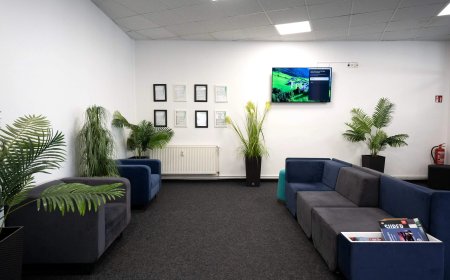Representation Matters: How PR Can Uplift Marginalized Voices
Representation isn’t just a checkbox—it’s a reflection of our society. People want to see themselves in the media they consume. They want to feel heard, seen, and understood. When PR campaigns uplift diverse voices—whether across race, gender identity, sexual orientation, disability, age, religion, or socio-economic background—they build credibility, trust, and emotional connection.
Public relations (PR) is more than just press releases and brand visibility. At its core, PR is about storytelling—shaping narratives that connect, inform, and influence. In a world where media plays a significant role in defining social norms and perceptions, representation within those narratives becomes not just important but essential. When PR fails to include marginalized voices, it reinforces exclusion. But when done right, PR can be a powerful force for equity, inclusion, and social change.
Why Representation Is a PR Imperative
Representation isn’t just a checkbox—it’s a reflection of our society. People want to see themselves in the media they consume. They want to feel heard, seen, and understood. When PR campaigns uplift diverse voices—whether across race, gender identity, sexual orientation, disability, age, religion, or socio-economic background—they build credibility, trust, and emotional connection.
If you’re searching for a reliable PR company in Delhi, we have the expertise you need. Reach out to us at Twenty7 Inc!
Marginalized communities have long been underrepresented, misrepresented, or entirely erased in public discourse. PR professionals have a responsibility to not only avoid perpetuating stereotypes but to actively counteract them by amplifying real stories from real people. Inclusive storytelling isn’t just ethical—it’s effective. It leads to stronger engagement, deeper loyalty, and broader cultural relevance.
The Power of Visibility
For historically excluded groups, visibility is a powerful tool. Seeing someone who looks like you or shares your lived experiences in the spotlight can inspire pride, confidence, and ambition. PR campaigns that intentionally elevate underrepresented voices send a clear message: you matter.
Brands that embrace this strategy have seen both social and commercial success. For example, campaigns like Always’ “Like a Girl,” which spotlighted gender stereotypes, or Netflix’s continued investment in diverse content, show how inclusive storytelling resonates deeply with modern audiences.
PR professionals can create a similar impact by:
-
Highlighting the stories of employees from diverse backgrounds
-
Partnering with community leaders and grassroots organizations
-
Featuring inclusive case studies and customer testimonials
-
Pitching diverse spokespeople to media outlets
From Tokenism to True Inclusion
There’s a significant difference between representation and tokenism. Tokenism involves surface-level inclusion without real depth or empowerment. It often involves using marginalized identities for optics, such as including a person of color in a photo shoot without engaging them in campaign strategy or decision-making.
True inclusion means allowing marginalized communities to co-create narratives. It involves inviting them to the table, valuing their input, and compensating them fairly for their contributions.
To avoid tokenism in PR:
-
Involve diverse voices at the planning stage of campaigns.
-
Provide space for people to share their stories in their own words.
-
Avoid stereotyping or oversimplifying lived experiences.
-
Hire inclusive agencies or consultants when internal expertise is lacking
Building Inclusive PR Teams
Authentic representation begins behind the scenes. A diverse and inclusive PR team is better equipped to spot blind spots, challenge assumptions, and tell richer, more nuanced stories. Inclusion in leadership also ensures decision-making reflects broader perspectives, not just dominant narratives.
Organizations must invest in:
-
Hiring and retaining diverse talent
-
Creating mentorship pipelines for underrepresented groups
-
Offering cultural competency training for all staff
-
Ensuring leadership reflects the diversity of the communities served
Diverse teams are not just a moral imperative—they are a competitive advantage.
Are you seeking a trusted PR company in Bangalore to manage your communications? Reach out to Twenty7 Inc. today!
Ethical Storytelling and Cultural Sensitivity
Uplifting marginalized voices requires care, respect, and sensitivity. PR professionals must ensure that stories are not exploited or sensationalized. Ethical storytelling involves informed consent, fact-checking, and empowering individuals to tell their stories on their terms.
When working with marginalized communities:
-
Ask permission before sharing personal stories or images.
-
Avoid trauma-centered narratives unless consent is explicit.
-
Highlight strengths, resilience, and contributions—not just struggles.
-
Be transparent about how stories will be used and who benefits
PR should aim to reflect the dignity and humanity of every subject.
Media Relationships and Gatekeeping
One challenge in uplifting marginalized voices is that mainstream media often prefers certain kinds of stories, told by certain kinds of people. PR professionals must be proactive in challenging this gatekeeping by pitching underrepresented voices to a broader range of outlets, advocating for diversity in speaker lineups, and building relationships with inclusive media platforms.
Some strategies include:
-
Developing a media list that includes BIPOC-owned, LGBTQIA+, or disability-focused outlets
-
Encouraging journalists to diversify their sources
-
Helping clients or spokespeople prepare for interviews with inclusive framing
-
Hosting events or panels that showcase diverse talent and thought leadership
The more diverse the media landscape, the more balanced and equitable the public discourse becomes.
Measuring Impact: What Does Success Look Like?
It’s not enough to say a campaign is inclusive—you must be able to demonstrate it. Metrics that go beyond impressions and media mentions are key. Evaluate:
-
Who is being featured, and whose voices are centered
-
Audience demographics and sentiment
-
Community feedback and partnerships
-
Internal diversity in teams and leadership
-
Long-term relationship-building with marginalized groups
Surveys, focus groups, and inclusive analytics tools can help PR professionals assess whether they are truly reaching and resonating with diverse audiences.
Moving Forward: A Commitment to Equity
Inclusion in PR is not a one-off campaign or seasonal effort. It’s a sustained commitment to equity and justice. As society becomes more vocal and vigilant about inclusion, PR professionals must rise to the occasion—listening, learning, and leading with empathy.
This means:
-
Regularly auditing your messaging for bias or exclusion.
-
Holding yourself accountable when you get it wrong—and learning from it
-
Using your platform to challenge systems of inequity
-
Championing underrepresented voices not just in content, but in leadership
When PR professionals commit to representation with authenticity and humility, they can help rewrite the story for the better.
If you're searching for a reputable PR company in Hyderabad, we’re here to assist! Reach out to us at Twenty7 Inc.
Conclusion
Representation in PR is not about optics—it’s about impact. By uplifting marginalized voices, PR can contribute to a more inclusive media landscape, a more equitable society, and a more connected world. It's not just a trend—it's a responsibility. And it’s time the entire industry stepped up to meet it.
Follow these links as well
https://twenty7inc.in/best-pr-agency-in-gurgaon/
https://twenty7inc.in/pr-agency-in-noida/
https://twenty7inc.in/pr-agency-in-chennai












































































